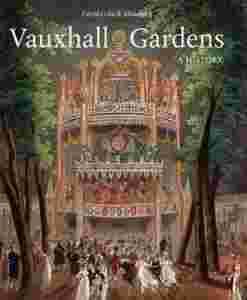|
From their early beginnings in the Restoration until
the final closure in Queen Victoria's reign, Vauxhall
Gardens developed from a rural tavern and place of
assignation into a dream-world filled with visual arts
and music, and finally into a commercial site of mass
entertainment. A social magnet for Londoners and
tourists, they also became a dynamic centre for the arts
in Britain. By the eighteenth century, when the Gardens
were owned and managed by Jonathan Tyers - friend of
Handel, Hogarth and Fielding - they were crucial to the
cultural and fashionable life of the country, patronized
by all levels of society, from royal dukes to penurious
servants. In the first book on the subject for over
fifty years, Alan Borg and David E. Coke reveal the
teeming life, the spectacular art and the ever-present
music of Vauxhall in fascinating detail. In the
nineteenth century the Gardens remained a popular
attraction, but faced increasing competition from new
forms of entertainment such as the circus and the music
hall and, with the arrival of the railway, the seaside.
Nevertheless, they remained a prominent feature of
London life right up to their closure in 1859.Borg and
Coke's historical exposition of the entire history of
the foremost pleasure garden of eighteenth- and
nineteenth-century London makes a major contribution to
the study of London entertainments, art, music,
sculpture, class and ideology, and puts into a very
particular context an unusual combination of subjects.
It reveals how Vauxhall linked high and popular culture
in ways that look forward to the manner in which both
art and entertainment have evolved in modern
times. |
|

